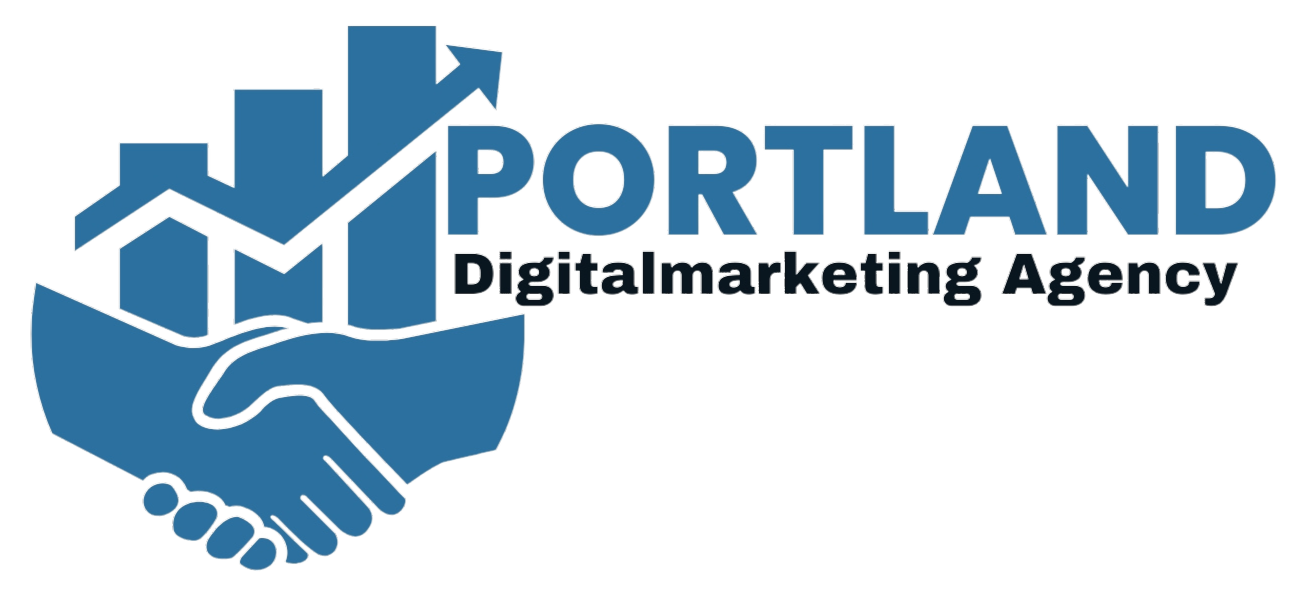As a leading Portland Digital Marketing Agency, we help businesses of every shape and size gain visibility, traffic, and conversion through smart, data-driven campaigns. A basic pillar of any thriving digital marketing campaign is on-page SEO.
Implemented properly, on-page SEO enhances the user experience, makes search engine crawlers easier, and creates local traffic, especially when incorporating keywords like “Digital Marketing Portland” or “On-Page SEO Portland.” Implemented improperly, though, it can push your website into the depths of the rankings and off the map.
Let us begin with the most common on-page SEO mistakes businesses make—and the fixes for these.

What Is On-Page SEO?
On-page SEO is the act of optimizing a specific web page to appear higher in search engines. It involves everything from content quality and keyword usage to page structure, images, internal linking, and mobile-friendliness.
For Portland companies, mastering on-page SEO is necessary in order to succeed in a competitive market. When someone types in “Digital Marketing Portland” or “SEO services near me,” you want to appear on top of the list.
Top On-Page SEO Mistakes and How to Avoid Them
1. Weak or Missing Title Tags and Meta Descriptions
Your title tag and meta description are what people see first in search results. If they’re missing, too long, or not compelling, you’ll miss out on clicks.
Common Mistake:
Generic, duplicated, or keyword-less meta tags.
Fix:
Create a unique title and description for every page using relevant keywords. For example:
Title:
On-Page SEO Portland Specialists | Portland’s Leading Digital Marketers
Meta Description:
Rank as number one with on-page SEO from our Portland digital marketing firm. Win local customers and grow your online business today.
2. Poor Keyword Placement and Excess
Placing your keywords strategically helps search engines understand your content. If you overstuff them, though, you give them a spam signal.
Typical Mistake:
Keyword stuffing like “Digital Marketing Portland” in every sentence.
Solution:
Use your base keyword once in the title, first paragraph, subheadings, image alt text, and naturally throughout the copy. Employ related terms to increase semantic relevance.
3. Degrading Page Load Times
A slow site isn’t just frustrating for visitors—it’s also a ranking factor within Google’s algorithm.
Common Fault:
Publishing massive images, not using caching, or poor hosting.
Solution:
Compress images, browser cache, minimize JavaScript and CSS, and choose a good host.
Tip:
Use Google PageSpeed Insights to analyze and improve your site’s speed.
4. Failing to Optimize for Mobile Visitors
Google is mobile-first indexed, meaning it views your mobile site first, then your desktop site. Your site will not rank if it doesn’t work properly on smartphones.
Common Mistake:
Unresponsive design or unreadable text on mobiles.
Fix:
Get a mobile-responsive theme or a responsive layout. Test your site on different devices and utilize Google’s Mobile-Friendly Test tool to scan for problems.
- Overlooking Image SEO
Every image is an opportunity to enhance your SEO, especially when you include alt text that includes your target keywords.
Common Mistake:
Including large images without alt text or file names like “IMG_8921.jpg”.
Fix:
Save image files by the description of the content (e.g., “on-page-seo-portland.jpg”) and descriptive alt text like:
“On-Page SEO services for Portland-based businesses”
6. Broken Internal Links
Internal linking keeps users on your site longer and tells search engines about how your content is connected. Bad or missing links damage SEO and user experience, too.
Common Error:
Stale links to 404 pages.
Solution:
Regularly scan your site for broken links and replace or remove them. Link to relevant content with keyword-rich anchor text like “learn more about our Portland digital marketing services.”
7. Thin or Low-Value Content
Your content should align with user intent and be informative enough to be helpful. Inadequately information-rich pages will be ignored by search engines.
Common Mistake:
Publishing 200–300-word posts that do not say much of anything.
Solution:
Target 800–1500 words per core page. For example, an “On-Page SEO Portland” service page should describe the service, why it is valuable, your process, and include FAQs.
8. Structured Data (Schema Markup) missing
Structured data helps Google better understand your website and increases your chances of appearing in rich results.
Common Mistake:
Not using schema at all, or using it incorrectly.
Fix:
Implement the LocalBusiness schema if you’re a Digital Marketing Agency in Portland. This will help highlight your business name, address, phone number, reviews, and more in search results.
9. No Clear Calls to Action (CTAs)
All your optimized pages should drive users to the next step—whether form filling, purchase, or contacting your team.
Common Mistake:
Dangling users with no CTA following content.
Solution:
Add clear, action-oriented CTAs like:
“Book a free SEO consultation with our Portland experts.”
“Get a quote from our Portland Digital Marketing Agency today.”
10. Omitting Local SEO Optimization
If you are providing the Portland area, then your metadata and content need to reflect what that is. Most companies fail to localize their SEO practice.
Typical Mistake:
Not referencing location or utilizing generic terms of service.
Remedy:
Use keywords like “Digital Marketing Portland” or “Portland SEO Services” in ads, page titles, and copy. Additionally, add “<strong>Google Map</strong>” and keep “<strong>NAP</strong>” consistency.
Name
Address
Phone Number.
Bonus Tip: Make Your Content Fresh
Even perfectly optimized content can become stale. Google favors recent content, especially in highly competitive spaces like online marketing and SEO.
Solution:
Periodically review and update your top-performing pages. Add new sections, update stats, or revise examples to keep your content fresh.
Final Thoughts
Solid on-page SEO is what’s needed to rank well, get traffic, and turn visitors into leads. By avoiding these errors, your site won’t just be performing better in search engines but also serve up a good experience for your users.
If your site isn’t doing well, let’s fix it. As a performance-driven Digital Marketing Agency in Portland, we offer customized SEO solutions that drive local businesses forward.
